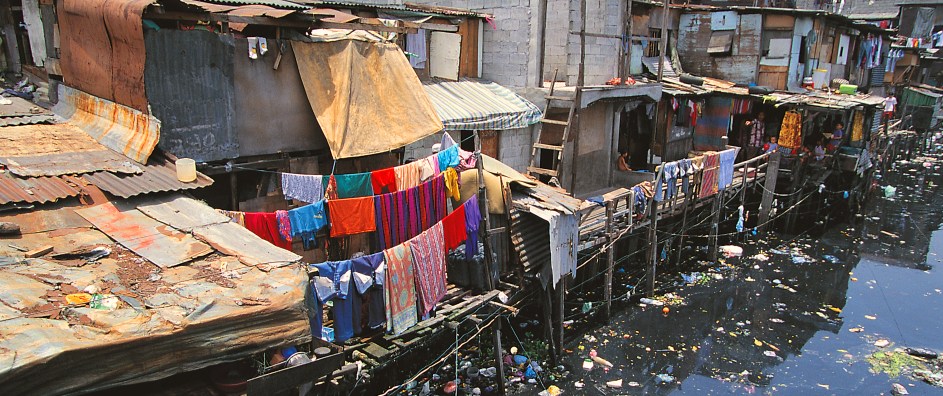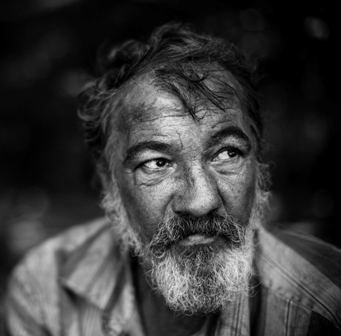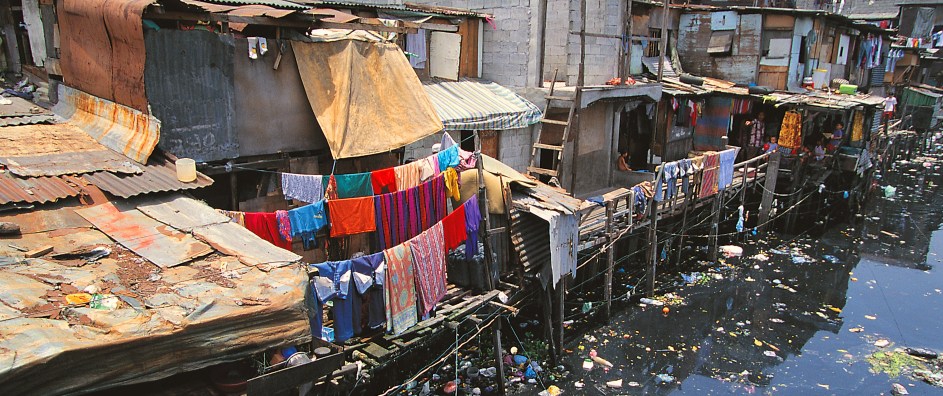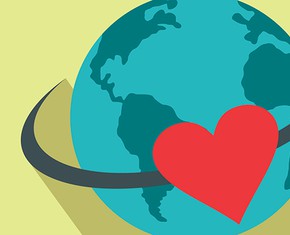The views expressed in our content reflect individual perspectives and do not represent the authoritative views of the Baha'i Faith.
 Almost half of the world’s people live on less than two dollars a day. But more than one billion people – about a fifth of the earth’s population – subsist in extreme poverty, living on less than a dollar a day.
Almost half of the world’s people live on less than two dollars a day. But more than one billion people – about a fifth of the earth’s population – subsist in extreme poverty, living on less than a dollar a day.
Because of those tragic facts, this week people around the world will observe two important U.N.-designated days – United Nations World Food Day on October 16th; and the International Day for the Eradication of Poverty on October 17th. These two observances recognize the critical importance of lifting the severe burdens of hunger and extreme poverty:
If we are to realize the future we want for all, we must hear and heed the calls of the marginalized… Together, we can build a sustainable world of prosperity and peace, justice and equity – a life of dignity for all. – U.N. Secretary-General Ban Ki-moon.
This persistent problem of extreme poverty affects all of us. Beyond the obvious human suffering it causes, extreme poverty has an enormous material and spiritual impact on every person, rich or poor, wherever they live in the world. When one in five human beings lives in extreme poverty, their economic conditions continually exert downward pressure on the world’s financial indexes. Their unmet food, shelter and healthcare needs mean we lose their unrealized talents and potential contributions to humanity. And the Baha’i writings describe the spiritual effect of tolerating such extreme privation in our midst:
Although the body politic is one family yet because of lack of harmonious relations some members are comfortable and some in direst misery, some members are satisfied and some are hungry, some members are clothed in most costly garments and some families are in need of food and shelter. Why? Because this family lacks the necessary reciprocity and symmetry. This household is not well arranged. This household is not living under a perfect law. All the laws which are legislated do not ensure happiness. They do not provide comfort. Therefore a law must be given to this family by means of which all the members of this family will enjoy equal well-being and happiness.
Is it possible for one member of a family to be subjected to the utmost misery and to abject poverty and for the rest of the family to be comfortable? It is impossible unless those members of the family be senseless, atrophied, inhospitable, unkind. Then they would say, “Though these members do belong to our family — let them alone. Let us look after ourselves. Let them die. So long as I am comfortable, I am honored, I am happy — this my brother — let him die. If he be in misery let him remain in misery, so long as I am comfortable. If he is hungry let him remain so; I am satisfied. If he is without clothes, so long as I am clothed, let him remain as he is. If he is shelterless, homeless, so long as I have a home, let him remain in the wilderness.” Such utter indifference in the human family is due to lack of control, to lack of a working law, to lack of kindness in its midst. If kindness had been shown to the members of this family surely all the members thereof would have enjoyed comfort and happiness. – Abdu’l-Baha, Foundations of World Unity, pp. 38-39.
 Baha’is believe that hunger and extreme poverty do not have to continue in the world. Baha’u’llah based the teachings of the Baha’i Faith on justice as the ruling principle in human society, and the Baha’i writings spell out clearly how that sense of justice and fairness for all can be codified into laws that protect the most vulnerable:
Baha’is believe that hunger and extreme poverty do not have to continue in the world. Baha’u’llah based the teachings of the Baha’i Faith on justice as the ruling principle in human society, and the Baha’i writings spell out clearly how that sense of justice and fairness for all can be codified into laws that protect the most vulnerable:
Each one of you must have great consideration for the poor and render them assistance. Organize in an effort to help them and prevent increase of poverty. The greatest means for prevention is that whereby the laws of the community will be so framed and enacted that it will not be possible for a few to be millionaires and many destitute. One of Baha’u’llah’s teachings is the adjustment of means of livelihood in human society. Under this adjustment there can be no extremes in human conditions as regards wealth and sustenance. – Abdu’l-Baha, Foundations of World Unity, p. 36.
Does this mean that Baha’is advocate socialism, an economic system that forces a large tax burden on the wealthy?
Read the next article in the series: Eradication of Poverty Day: Sharing Wealth the Baha’i Way
















Comments
Sign in or create an account
Continue with Googleor